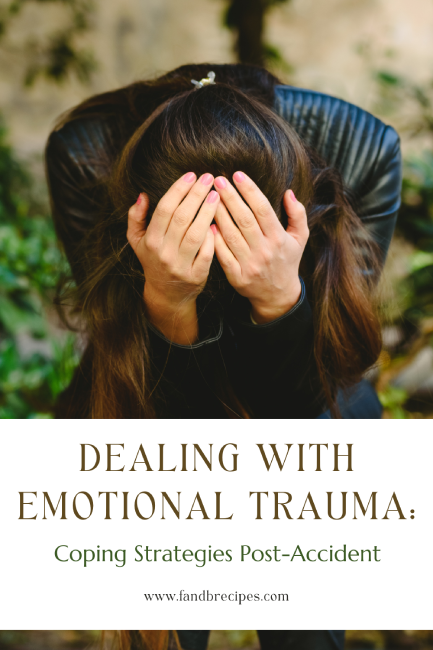Dealing with Emotional Trauma: Coping Strategies Post-Accident
It is common for people to associate being in a car accident with physical injuries and losses to personal property. In fact, that is the main reason why victims reach out to a car accident lawyer. This way, they will have someone by their side, handling the legal aspects of their case, while they focus on recovering their health. However, an often-overlooked result of being in a car accident is having to deal with the emotional trauma associated with the crash.
Understanding Emotional Trauma
If you are uninterested in life, depressed, unable to fall asleep, sleeping too much, reacting aggressively with those around you, or if you fail to enjoy things and activities that used to bring you joy, you may at first not associate these feelings with the car accident.
However, emotional trauma is a common consequence of these events, and being aware of this is only the first step in understanding the impact the crash has had on your life and how to go about overcoming this side-effect of the collision.
Some feelings you may be experiencing may include:
- Being constantly reminded of the accident due to certain triggers that force you to relive it. These flashbacks may bring you fear and anxiety.
- Unwillingness to be around friends and family because you feel emotionally disconnected from everyone.
- Avoidance of actions that may bring back memories of the crash such as getting in the car, driving, or passing by the spot where the accident occurred.
Recognizing that what you are experiencing is emotional trauma, may be the first step in starting to look for ways in which to cope so that eventually you will feel strong enough again to move forward.
Identify Your Triggers
Knowing that what you are feeling is not something random but it is related to the crash, may help you start identifying what triggers these emotions. If there was smoke during the accident, your trigger may be any food that gets burned in the kitchen.
If you are outdoors, any sound that you associate with the crash such as loud horns, screeching tires, or crashing metal, may transport you directly back to the moment of the accident. These are just a few examples but they may give you some ideas as to how to start identifying the external factors that trigger your emotional distress.
Find Ways to Avoid Your Triggers
It is crucial for you to find a way to remove yourself from a stressful situation. When you note that something or some sound is triggering your distress, try to move to another place. If you have to drive past the place where the accident took place, try not to linger or use a different route.
One helpful tactic that may work is to talk to your family and friends about your trauma. This way, everyone around you can be aware of your emotional distress and also help you avoid your triggers. There is nothing more effective than having a strong support system to help you deal with and eventually overcome your triggers.
Look For Therapeutic Options
Talk to your primary care doctor about possible treatment options for your emotional distress. They may recommend some sources of therapy and may refer you to the right healthcare provider to help you implement them.
You may be recommended some medication therapy to deal with the trauma, or maybe they will refer you to someone who can offer you therapy to learn to confront your triggers.
Another option is for a professional to help you learn how to avoid your triggers or you might prefer going to group therapy to meet with others who might have experienced something similar to what you went through.
Find Your Own Ways to Manage Your Fears and Anxiety
As time passes and the accident starts to recede into the past, you may find that you have discovered your own ways to deal with the fears and anxiety that this event brought to your life. You may find that being able to focus on whatever causes the triggers and finding ways to avoid them or react differently to them, will start bringing you some measure of closure.
Remember that what is important is the quality of your life and working with an accident attorney to fight for the compensation you deserve may offer you the resources you need to seek relief from your emotional distress. Your attorney will fight for your rights and to get you the maximum compensation possible. This way you can focus on getting the most effective treatment options for you and concentrate on fighting your own battle with your post-traumatic stress symptoms.
Look for a legal professional who has experience with cases similar to yours and who has represented them successfully. You want a skilled attorney who will always be in your corner.




